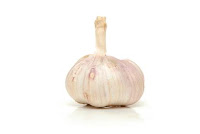turmeric, peculiarità e benefici Turmeric, little known in Europe as it does not fit our traditional eating habits, it is much used in Indian cooking and oriental spice. Ayurvedic medicine treasure it, reserving many uses that go far beyond the table.
In India it is known and used by at least 5,000 years, as medicine, spice and even coloring. Botanically speaking from the family of Zingiberacee turmeric, herbaceous perennials, with rhizomes and grown mainly in tropical regions. Its name derives from the Persian-Indian, and specifically the word Koum Kouri, which means saffron, turmeric it is also known as the Saffron of the Indies. Its rhizomes, which are part of the plant containing the active ingredients or drugs, are boiled for several hours and dried in large ovens, then crushed to yield a yellow orange powder that is commonly used as a spice in cuisine of South Asia. The turmeric powder is the ingredient that gives the characteristic color to curry, the taste is very volatile while on the contrary, the color remains unchanged. For this reason it is a substance that is widely used in the food industry as a coloring agent, its code is 100; foods such as cheese, yogurt, mustard, canned soups and several others are often colored with turmeric derivatives.
The spice that is derived from turmeric contains hundreds of components, but the attention of scholars has focused on one in particular: curcumin. Other components present in turmeric are potassium, vitamin C, starch. Very important is the presence of essential oils that can stimulate appetite, and those who are bitter that stimulates the function of digestive enzymes.
PROPERTY 'AND HEALING BENEFITS OF TURMERIC
According to recent studies showed that curcumin could be useful to counter the emergence of at least eight tumors: colon, mouth, lungs, liver, kidney, breast and leukemia. Turmeric is used in traditional Indian medicine and Chinese as a detoxifying the body, in especially as the liver and anti-inflammatory. The health benefits that are attributed to the popular tradition turmeric are the same that are now confirmed by official medicine in the light of numerous studies and discoveries that science has now officially confirmed.
The thing that caught the attention of scholars is the fact that in Asian countries, particularly India, where turmeric consumption is high, the incidence of cancer is very low. Very interesting antioxidant properties of curcumin that are able to transform free radicals into harmless substances for our body and of course to slow the aging of our cellular landscape. Also very good healing action of this spice. Finally, according to a study published in the journal Cancer Research turmeric would have a key role in the prevention and treatment of prostate cancer. It was also found that the effect of curcumin is even more evident when it is associated with an isothiocyanate present in vegetables such as cabbage, broccoli or cabbage turnip.
HOW TO USE THE TURMERIC
to use healthy enough to be able to integrate it into our daily diet. A couple of teaspoons a day is the ideal dose, may be added after cooking of many foods but you can also add different types of yogurt or make a sauce. It 'important to remember that turmeric should be taken together with black pepper or green tea to facilitate the absorption, not only, also along with some fat, like olive oil or butter, facilitates its absorption.
- A teaspoon of turmeric powder mixed with a glass of milk has no effect against colds and bronchitis, as well as improve the overall health of the body.
- The fresh juice of the root is a major pest.
- The root extract is an antidiabetic agent: 5 mg of turmeric powder with a glass of water maintain balanced blood sugar. Turmeric is able to facilitate the production of insulin.
- Assunta in any form, is great for removing gas from the digestive system.
- It 's effective in treating diarrhea, because it has extraordinary properties of rejuvenation of the digestive system by improving blood flow.
- The fresh juice of the root is effective against skin diseases, particularly acne.
- Promotes the production of antibodies by increasing the resilience of the whole organism.
And it's great as a spice in cooking. Its use in sauces and dressings not only gives flavor and color but exempting from its use as medicine.








